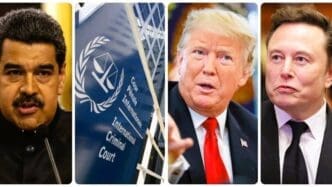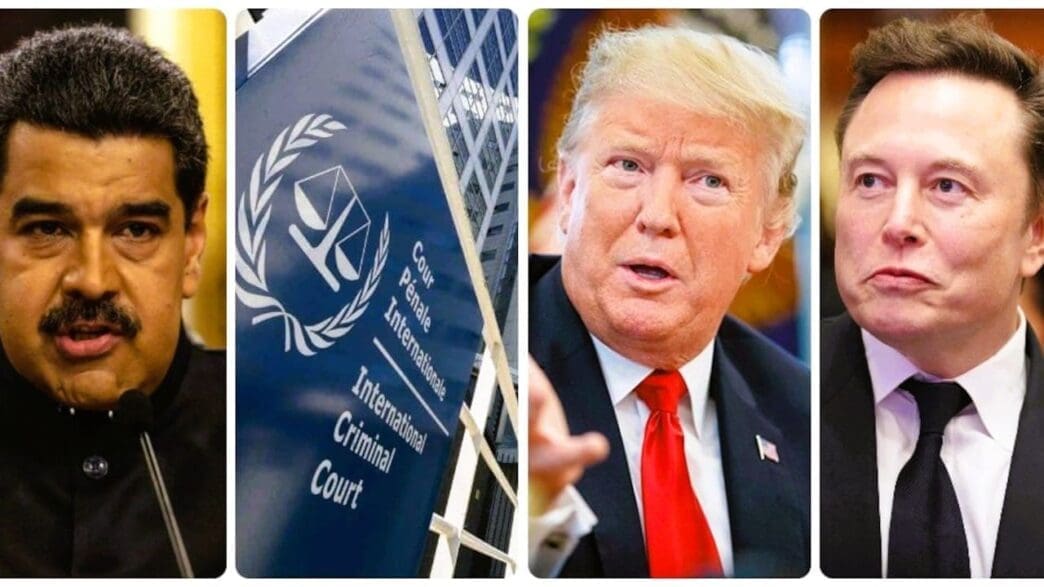The question of whether Nicolás Maduro can be ousted through external forces is complex. Many voices demand change, raising questions about potential means. These forces range from international leaders to internal military dissent. This article explores the realities of each avenue, examining challenges and potential outcomes.
Maduro’s retention of power, despite numerous controversies, underscores a significant international issue. This complexity involves Donald Trump, Elon Musk, and international agencies, all seemingly influenced by Venezuela’s geopolitical significance. Various scenarios present unique challenges, yet hope persists. The following examines in detail the different approaches contemplated to remove Maduro from office.
Influence of Donald Trump and U.S. Intervention

Increased U.S. rewards for Maduro and Diosdado Cabello have sparked speculation about possible U.S. intervention. Trump’s past actions in the Middle East contribute to these perceptions. However, such actions seem unlikely now, as Trump faces geopolitical constraints.
Trump’s stance on international intervention has evolved. The prospect of military action is tempered by other global tensions, such as with China and Iran. The complexities of a U.S. intervention are significant, making direct action appear less feasible.
Trump’s previous policies, which shifted towards non-intervention, suggest that any drastic steps are improbable. The historical context of U.S. actions in regions like Iraq and Panama highlights the challenges of justifying intervention in Venezuela.
Role of the International Criminal Court

The International Criminal Court (ICC) might issue warrants against Venezuelan leaders, which could lead to internal fractures. However, historically, such actions haven’t been effective in removing entrenched leaders.
Maduro’s alliances with countries beyond ICC jurisdiction make enforcement tricky. These limitations were evident with ICC’s actions against other global leaders, like Vladimir Putin. The resilience of Maduro’s regime seems unaffected by potential ICC rulings.
Despite the potential impact of ICC decisions, the history of non-cooperation by strategic allies limits their effectiveness. Maduro’s systemic support from non-ICC countries suggests that these efforts may not significantly alter power dynamics.
Elon Musk’s Economic Leverage

Speculations abound about Musk’s potential impact on the Venezuelan regime. His influence in technology and energy sectors could indirectly pressure Maduro economically. However, these are complex and indirect methods.
Musk’s vocal opposition through social media has nuanced his role. While he may not directly topple regimes, his business interests could destabilize crucial economic dependencies of Venezuela.
The possibility of Musk using his resources to support opposition financially is conjectural. The strategic importance of energy complicates Musk’s potential influence, restricting his capacity to enact significant change promptly.
Mercenary Involvement: The Blackwater Proposition

Erik Prince’s proposal has stirred debates about mercenaries in regime change. His offer of private military action, contingent on financial incentives, showcases the unconventional nature of this pathway.
While the idea of mercenaries creating a shift in power is appealing to some, it faces significant international legal and ethical hurdles. The legitimacy of such an approach remains controversial and fraught with risk.
The effectiveness of Prince’s proposition is speculative. The complexity of international relations and the risks associated with non-state actors limit the feasibility of this strategy. The secretive nature of such operations adds layers of uncertainty.
Venezuelan Military: Possibilities of Internal Dissent

Speculation about a military coup highlights internal tensions. Discontent among lower-ranking officers contrasts with the benefits enjoyed by top generals, which complicates predictions.
Maduro’s control has waned among the populace, yet the military remains divided. The risk of severe repercussions for dissenters acts as a deterrent, stifling potential uprisings.
Understanding the dynamics within the Venezuelan military is key. While disenchantment exists, previous purges of non-loyalists suggest that any internal shift in power would be difficult to execute.
Economic and Political Realities
Maduro’s regime survives amidst economic turmoil. International sanctions have strained resources. Economic hardships persist, influencing potential political shifts.
Venezuela’s reliance on oil revenue frames its global interactions. Economic sanctions squeeze the regime but also inflict widespread hardship on citizens, creating a difficult balance.
Political pressures, both internal and external, continue to mount. However, the regime’s adaptability to these challenges demonstrates its resilience despite ongoing economic crises.
Social Media and Public Perception
The role of social media in influencing public opinion cannot be understated. Musk and others utilize platforms to spread opposition narratives, impacting global perceptions.
Public perception varies internationally. While social media can sway opinions, it often lacks the power to drive concrete political change without accompanying actions.
The digital era amplifies political discourse, yet the translation from online advocacy to tangible action remains a complex challenge. Social media alone is insufficient to enact regime change.
Historical Context of Venezuelan Governance
Historical influences shape the current political climate in Venezuela. Long-standing ties with socialist allies complicate foreign intervention strategies.
The intertwining of ideology and power under Maduro reflects patterns seen in past regimes. Understanding these dynamics provides insight into modern governance challenges.
Historical patterns show a resistance to change enforced externally. Alliances and domestic policies have built a framework where external pressure alone is unlikely to initiate regime change.
Future Prospects and Strategic Considerations
Given the array of potential strategies, the path forward remains complex. Each external and internal factor offers both opportunities and obstacles.
While some avenues present possible shifts in power, none offer an immediate solution. The nuanced interplay of global politics and domestic issues continues to shape Venezuela’s future.
The world watches as these possibilities unfold. Strategic patience and adaptation to evolving circumstances appear critical in navigating Venezuela’s intricate political landscape.
The challenges of displacing Maduro’s regime remain formidable. Each discussed path has its own hurdles, and no clear solution emerges yet.
Understanding these dynamics is crucial in predicting future developments in Venezuela. The interplay of international and domestic forces continues to evolve.








